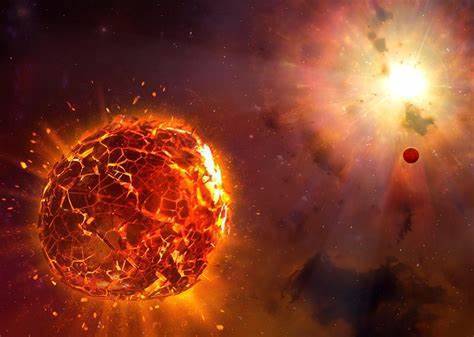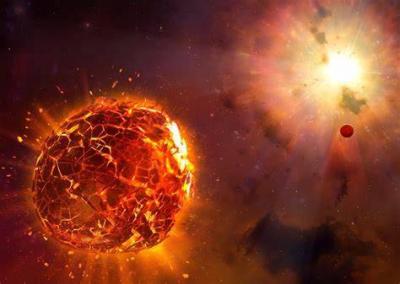Astronomers have reported that next Monday, inhabitants of Earth will witness a rare astronomical event when the star Betelgeuse, the largest and brightest star in the sky, is set to disappear, creating a unique eclipse. Astronomers have identified the countries that will clearly see the phenomenon of the Betelgeuse star eclipse, including Tajikistan and Armenia in Central Asia, through Turkey, Greece, Italy, Spain, and into Miami, the Florida Keys, and parts of Mexico.
Betelgeuse is a massive red supergiant star located in the Orion constellation, known to Earth dwellers as "Lyona." It is a rectangular space rock slowly rotating in the main asteroid belt between Mars and Jupiter, with a width of about 34 miles and a length of 50 miles (55 kilometers wide and 80 kilometers long).
Astronomers hope to learn more about Betelgeuse through this eclipse, expected to last no more than 15 seconds. However, there remain doubts about those predictions, as well as the size of the star and its extended atmosphere. It is unclear whether the asteroid will completely obscure the star, leading to a total eclipse. Alternatively, it might result in an annular eclipse with small fiery edges surrounding the star. If the eclipse is total, astronomers are unsure how many seconds the star will completely vanish, possibly up to 10 seconds.
Astronomer Gianluca Masi, founder of the Virtual Telescope Project, stated, "On December 12, 2023, asteroid (319) Lyona will come between us and the star Betelgeuse, creating a magnificent and rare eclipse for a few seconds. We will use light equipment to gather scientific data and share the scene live."




